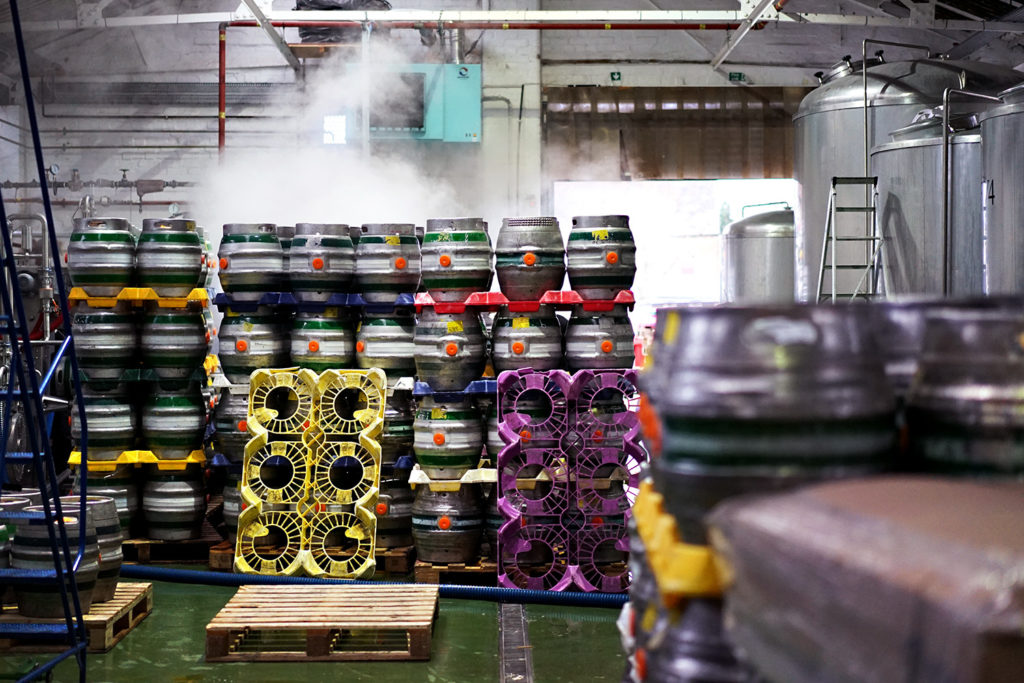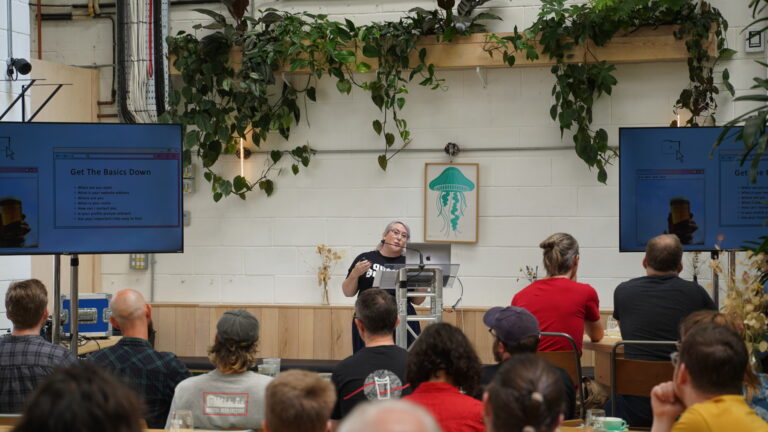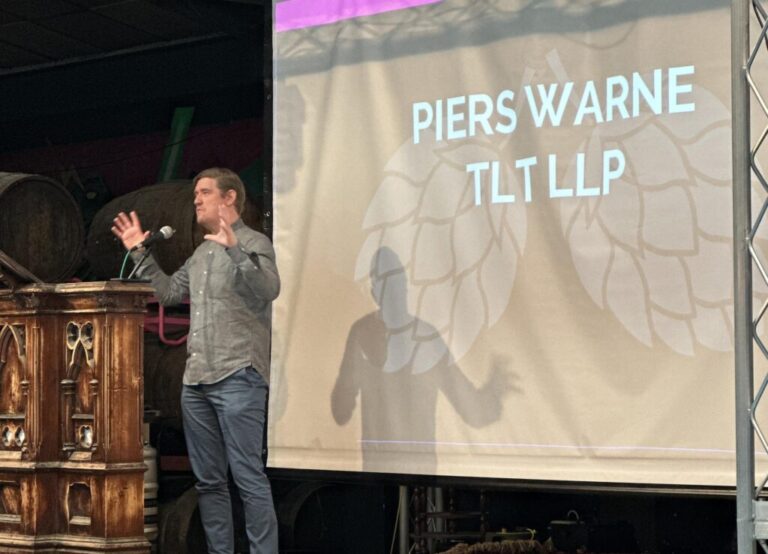When independent Manchester brewery Cloudwater announced that it would be discontinuing the production of cask beer this January, it became the epicentre of a tumultuous debate that sounded throughout the beer world.
Quite suddenly, cask beer and its relative health within the UK beer industry was being called into question. Other breweries, such as Berkshire’s Siren Craft Brew and South Wales’ Tiny Rebel were quick to jump into the conversation and reassure customers that they would not be following suit. At the heart of this debate was the topic of price, with one of Cloudwater’s main reasons for ceasing cask production being the unworkable margins that the format offers.
Almost hidden amidst this discussion came some interesting news from SIBA, the Society of Independent Brewers. It announced that Enterprise Inns would be reducing the price it pays for cask beer to members enrolled on SIBA’s Beerflex direct delivery service by £3.00 per firkin.
This reduction follows a similar £5.00 per firkin reduction SIBA introduced to the same tariff last November – further increasing a price reduction that could be detrimental to many small and independent brewers choosing to use the scheme.
There is an argument within the beer industry that cask beer is simply sold at too low a premium for many brewers to make decent margins on the product. Historically, the cask beer market has demanded a lower price point at retail than keg or bottled beer – even though some brewers are often putting exactly the same product into cask as they are to keg or bottle.
At the production end of the scale brewers are fighting against the rising costs of raw materials and business rates. On top of this many brewers are choosing to compete aggressively in the marketplace, with cut-price deals that often include free casks for those wishing to bulk buy.
The sad truth is that those brewers who are choosing to invest time and money in producing a premium product to be packaged in cask are being squeezed from both ends of the market. Cloudwater’s cask production may have been comparatively small compared to that of many other brewers, but with market conditions as they are it’s easy to see other brewers doing the same.
Feeling the Pinch
SIBA’s direct delivery service (DDS) was originally introduced in 2003 and was rebranded as Beerflex in 2015. According to a statement by SIBA managing director Mike Benner, it currently allows 550 members access to 2500 pubs within the estates of 12 PubCo’s, including Enterprise Inns, Punch Taverns and Greene King. Without the scheme, many members would not have access to these pubs if they wanted to sell direct.
But why would SIBA, an organisation whose primary aim is to support its membership of small, independent breweries, agree to a deal where those members will see their margins on cask beer reduced? I spoke to SIBA’s commercial director Nick Stafford about the reasoning behind offering this reduced pricing to Enterprise Inns.
“Enterprise Inns is a long-term supporter of local beer and, since its formation, has been a major customer of SIBA’s award-winning Beerflex Direct Delivery scheme,” Stafford says. “Enterprise Inns have informed us that they are reducing prices to brewers and this has been communicated to SIBA’s members. We hope that the reductions will lead to access to even more pubs in the Enterprise estate so that more drinkers can enjoy high quality, locally brewed beers.”
However, with margins on cask beer being squeezed so hard, I find it difficult to understand SIBA’s acceptance of Enterprise’s demands. For me, in this instance SIBA should be supporting the brewer by helping it protect its margins. Stafford argues, though, that without Beerflex, these brewers simply wouldn’t have access to these taps and the choice for the consumer would be significantly narrower.
Does this added exposure to the consumer provide any real benefits to a business when it comes directly out of its profits? For Twickenham Fine Ales in Middlesex, it feels like they have little choice but to rely on the scheme.
“We use [Beerflex] to get into certain pubs locally that we couldn’t without it,” head brewer Stuart Medcalf says. “If we didn’t have to use it to get our beer into those pubs we wouldn’t.”
Medcalf continues: “Traditionally, Enterprise was the best payer so these reductions really hit our margins, especially as there’s no minimum order so sometimes that means that we’re delivering a single cask ten miles.”
While Twickenham Fine Ales continue to supply Enterprise via Beerflex due to its perceived necessity, Dark Star Brewing of Partridge Green, Sussex have made the decision to cease its supply of beer to Enterprise via the scheme. I spoke to Dark Star director James Cuthbertson about his reasoning behind this.
“We remain members of SIBA and active members of Beerflex but have withdrawn from supplying Enterprise through the scheme as a result of increased pressure on margins,” Cuthbertson says. “Sadly the recent changes in price paid for beer has made the deal unsustainable for us.”
“We’re lucky enough to supply lots of freehouses directly, so whilst the loss in volume is significant for us, you have to draw the line somewhere and we’re not prepared to compromise on ingredients or short-cut processes to make the deal work.”
Weighing the Cost
Cuthbertson also fears that these price cuts will hit smaller brewers hardest, creating a market that could be difficult for them to survive in, let alone thrive. Many small brewers, such as Manchester’s Beer Nouveau, choose not to join SIBA at all, with the costs appearing to far outweigh any benefits. Beer Nouveau’s owner and head brewer Steve Dunkley shared a few thoughts on why he’s chosen not to join.
“There’s no obvious reason for us to join SIBA. The joining fees are large, and when you’re setting up you need to watch every penny,” Dunkley says. “The only benefit I can see is access to its Beerflex scheme, which has an additional enrolment fee, then an admin fee and then fees for each beer you add to it. If you’re a small brewer those fees quickly add up and [in Manchester] there are enough other outlets around that you don’t need to sell into Enterprise, who dictate the price.”
From this evidence it’s clear that cask beer margins will continue to be squeezed, especially with PubCo’s like Enterprise as well as the consumer at large dictating a low price point. With profits in cask beer gradually being reduced by price cuts such as these, along with the increasing cost of production, we could see a ripple effect in the industry that could have a detrimental effect towards the profitability and success of the UK’s small and independent brewers.
Should SIBA be taking responsibility to protect the margins of its members, or does it have a wider responsibility to expose the consumer to beer from small, independent brewers? If you’re a brewer or a landlord and you’ve been affected by Beerflex, or other price constraints within the cask beer market, then we want to hear from you. You can get in touch by emailing matthew@totalales.co.uk – I look forward to hearing from you soon.
Photo Credit: Matthew Curtis








